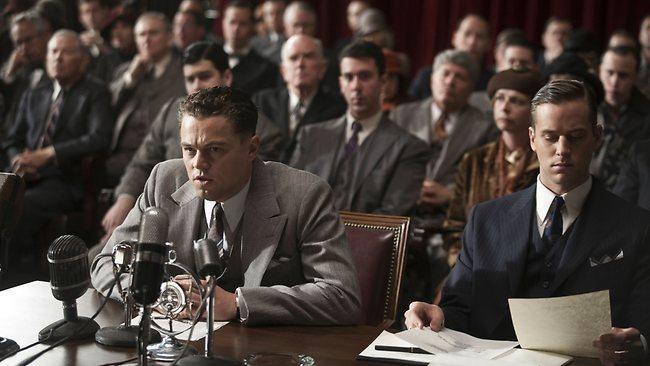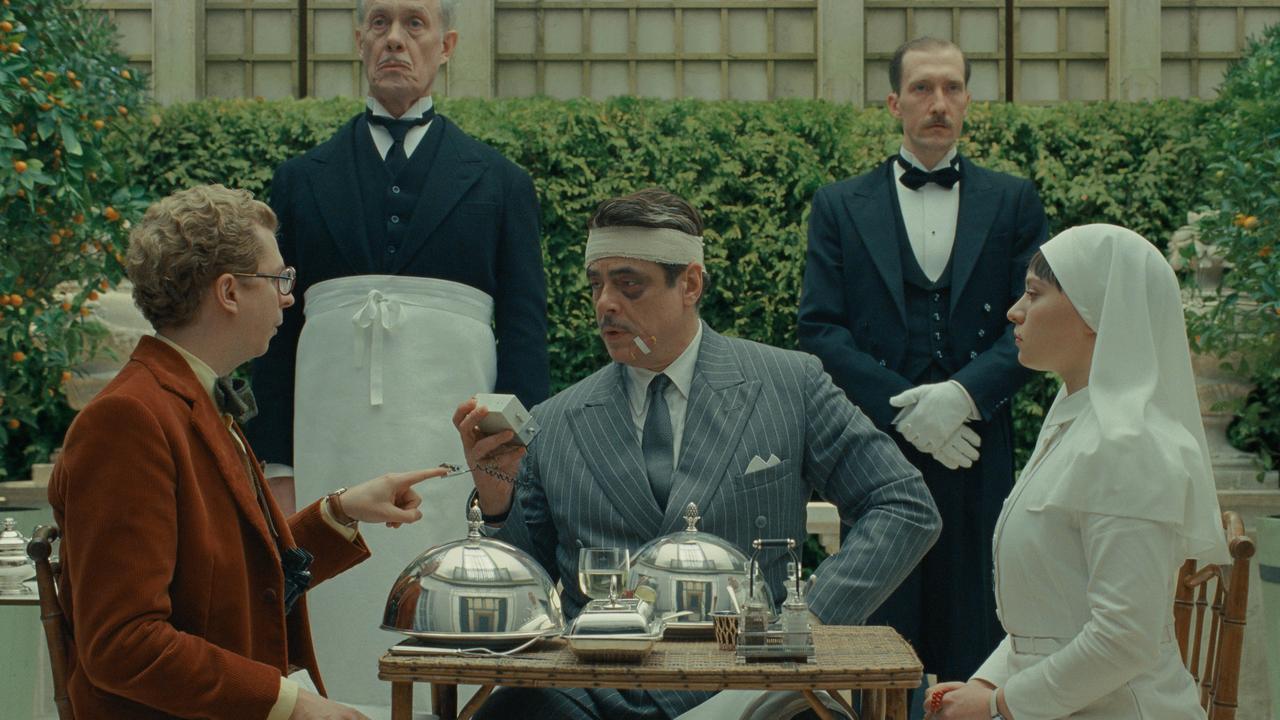DiCaprio shines as the iron man in J. Edgar
A NEW film directed by Clint Eastwood is something to look forward to, and he doesn't disappoint with biopic J. Edgar.

THESE days a new film directed by Clint Eastwood is something to look forward to. Eastwood is one of the few directors active in Hollywood these days who upholds the great traditions of cinema's golden era (Martin Scorsese is another).
He's a born storyteller who tells his stories with economy and an unflashy style, and the subjects that interest him are many and varied.
J. Edgar is his biopic of J. Edgar Hoover, the man who ran the FBI from its beginnings in 1924 - when it was called simply the Bureau of Investigation; Hoover added the Federal in 1935 - until his death in 1972, and it is interesting to compare it with Phyllida Law's portrait of Margaret Thatcher in The Iron Lady. Both films explore in no-nonsense but essentially even-handed ways the personal and professional lives of immensely powerful and controversial figures, and both are distinguished by memorable central performances.
It seems as though Meryl Streep's Thatcher is deemed worthier of praise and awards than Leonardo DiCaprio's Hoover, but both actors do astonishingly fine work in these difficult roles.
Hoover served under eight American presidents, from Calvin Coolidge to Richard Nixon, and he was widely considered to be the second most powerful man in the US during this period. His federal police force, which claimed precedence over all state and local jurisdictions, was initially established to combat the gangsterism spawned by Prohibition, the US's unwise attempt to ban the consumption of alcohol. (The policy was initiated in January 1920 and finally brought to an end in December 1933.)
During this period, some parts of the US, notably Chicago, became battlegrounds as rival bootleggers fought one another for control of the supply of liquor, and it was this lawlessness the bureau was formed to combat. From the start, Hoover was determined to control the way the bureau was depicted in the media. He was supposedly infuriated that Hollywood films such as Little Caesar, The Public Enemy and Scarface had, in his view, glorified gangsters, and he brought pressure to bear on the studios to produce movies that carried the message that crime doesn't pay.
One of the first of these was G-Men, made in 1935 (the year the bureau became the FBI), which starred James Cagney, who had appeared as a glamorous gangster in The Public Enemy four years earlier, as an equally glamorous federal agent (the term G-men - the g standing for government - was apparently coined by Machine Gun Kelly at the time of his arrest).
As depicted in Eastwood's film, Hoover was a control freak who demanded perfection from his employees. In his lifetime there were no female FBI agents, and few African-Americans. Agents were compelled to wear suits and ties and well-polished shoes, and it helped if they were handsome and well-built. Moustaches were not tolerated.
A man with a cleanliness complex, Hoover would wash his hands after shaking hands with someone. He was also vain; troubled by his relatively short stature, he had a platform built behind his desk so he appeared to be taller than he was. Later in his career he enjoyed being seen in the company of famous women. He sat at Ginger Rogers's table at the Stork Club and escorted Dorothy Lamour to dinner.
Hoover was, the film makes clear, always interested in investigating radical ideas as much as he was investigating crimes, and after World War II he turned his attention to the communist threat and joined forces with senator Joe McCarthy to combat it. It is said he was able to retain his power and influence because he knew where the bodies were buried; that his secret files contained damning evidence of indiscretions by politicians great and small, presidents included. Information is power was his mantra.
All this and more is incorporated in Dustin Lance Black's screenplay for Eastwood's film. Given that Black previously scripted Milk, the excellent biography of gay activist and politician Harvey Milk, for Gus Van Sant, you might suppose that J. Edgar would turn into an expose of Hoover's alleged homosexuality, but the film remains equivocal on this subject. As a young man, Hoover was dominated by his mother, well played by Judi Dench, and he lived with her until her death. According to the film, he invited Helen Gandy (Naomi Watts), a young secretary, on a date and wound up showing her his filing system. She became his personal private secretary, the one person who knew the whereabouts of his secret files.
His threats to blackmail John F. Kennedy, and to discredit Martin Luther King (he was outraged that King was awarded the Nobel Peace Prize) were among his most despicable actions, according to the film.
The film also depicts his close relationship with Clyde Tolson (Armie Hammer), a tall, handsome agent who became his closest friend and, some would assert, secret lover. They dined together on a regular basis, shared hotel rooms on occasion, and Tolson inherited Hoover's estate. Yet Hoover was an implacable enemy of gays and his mother was scornful of feminine men ("I'd rather have a dead son than a daffodil for a son").
In the light of all this, Eastwood is non-judgmental. Hoover, we suppose, was a closet gay, tormented by his instincts and reacting violently against them. All these elements are skilfully woven into the film.
This isn't the first movie about Hoover. In 1977, five years after his death, Larry Cohen, better known for his low-budget horror movies, directed The Private Files of J. Edgar Hoover which, though it seems to have fallen through the cracks in the intervening years, enjoyed a cult status at the time. Broderick Crawford played a blustering Hoover opposite Dan Dailey as Tolson, and the film suggested Tolson was Deep Throat, the insider who helped Bob Woodward and Carl Bernstein bring about Nixon's downfall. Eastwood's film is far more polished and, in its own way, even more interesting.
DiCaprio gives a very fine performance. He was not the most obvious choice for the role, but he convinces both as the young, strangely naive Hoover and also as the ageing lawman determined not to let his power and influence slip away from him.
Watts, as always, is a marvel, investing her character with layers of ambiguity and intelligence, while Dench seems to be enjoying playing the control-freak mother of a control-freak son.
In 1959, at about the same time a young actor called Clint Eastwood was playing a World War I pilot in Lafayette Escadrille at Warner Bros, the studio most identified with gangster films embarked on a 2 1/2 hour epic extolling uncritically the activities of the FBI. James Stewart starred as a fictitious G-man in The FBI Story, which Jack Warner produced with "the full co-operation" of the bureau, and rumour has it that after seeing a rough cut, Hoover insisted that director Mervyn LeRoy re-shoot some scenes that weren't sufficiently flattering to the bureau in general and to Hoover in particular.
Hoover would undoubtedly have disliked Eastwood's film about him, but given controversy that still swirls around his lengthy tenure at the bureau, even he would have to admit that J. Edgar is remarkably even-handed.
It also provides riveting entertainment and fascinating insights into an important period in recent American history.
J. Edgar (M)
4 ½ stars
National release



